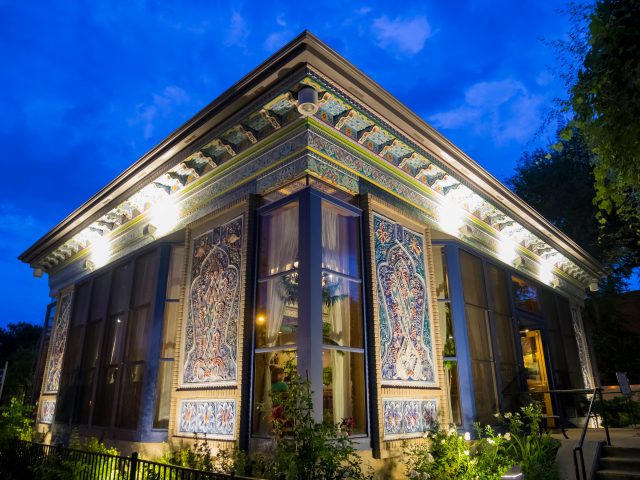
The Boulder Dushanbe Teahouse is an otherworldly icon. Its ornate carved plaster panels, colorful ceramic tile mosaics and fragrant rose garden are a breath of fresh air amid downtown Boulder’s prevailing brick motif.
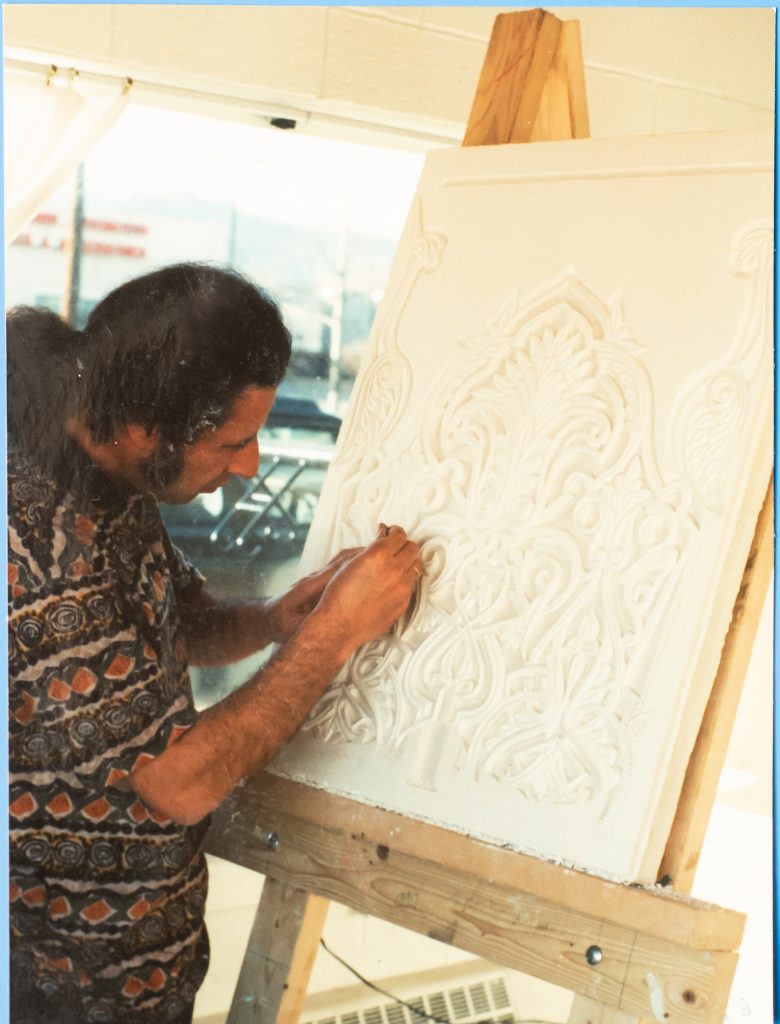
After 25 years on 13th Street, North America’s only authentic Persian teahouse is a dining landmark that is always on tourists’ must-visit list. Its timelessness suggests that proper Earl Grey has been served there forever.
Thirty years ago, that location near Central Park was an empty lot. The Teahouse — handcrafted by 40 artisans in Tajikistan — was sitting in 200 shipping crates at a Boulder water treatment plant.
It would take a decade of fundraising and the usual municipal hurdles before the crates were opened and the Teahouse was erected in 1998.
Like most Boulderites, Lenny Martinelli was only dimly aware that Boulder even had a teahouse.
“I was biking down 13th Street and I saw a sign on an empty lot for the future Teahouse that included a small vignette of the Teahouse. We had opened the Naropa Cafe at the time. I’m like, ‘Wow, that’d be an awesome restaurant.’ I called the number and said I was interested,” says Martinelli, chef and co-owner of the Boulder Dushanbe Teahouse since it opened. Martinelli and his wife Sara also operate Leaf Vegetarian Restaurant, Chautauqua Dining Hall, and Three Leaf Farm.
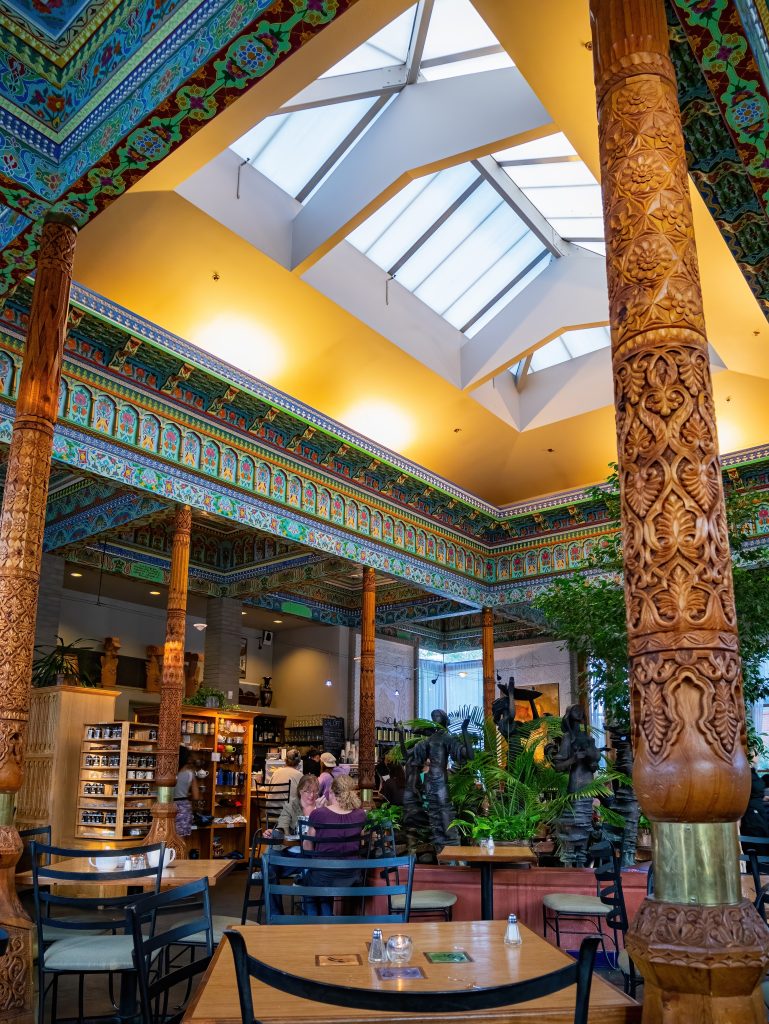
The couple eventually received an invitation to bid on running the restaurant, according to Sara.
“They sent out about 100 invitations to restaurateurs around town. I had just graduated from art school so we made a really pretty proposal,” she says. “Back then, Boulder restaurateurs didn’t know if they wanted to get involved with the city … We were young. I want to say ‘ignorant,’ but I’ll use the word ‘innocent.’”
Looking back 25 years, Sara admits the couple had no idea what they were taking on. “Nobody had an accurate idea what the Teahouse would look like,” she says. “We thought it was going to be like a little Japanese tea house. We were quite overwhelmed when we saw how big it was.”
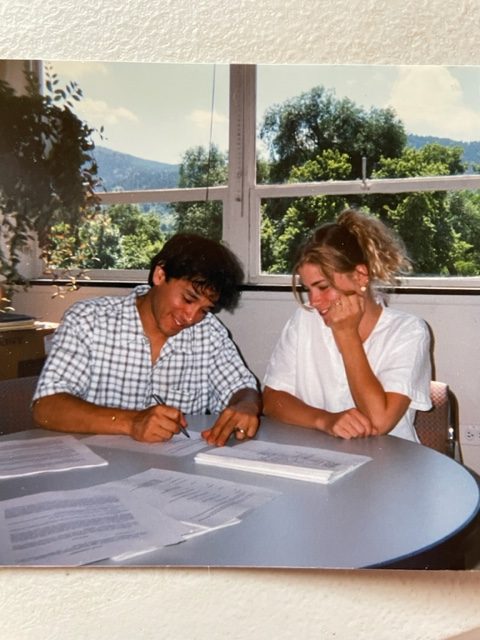
‘I just dove into tea’
Sara faced an interesting challenge in 1998. While her husband devised an appropriate international food menu, she worked on the tea menu. “I was an herbalist but I didn’t know much about tea. The internet was almost non-existent,” she says, noting there was no way to Google: “How to run a teahouse.”
“I just dove into tea, the Camellia sinensis plant, and found people to teach me and mentor me,” she says. The Teahouse now serves more than 100 different teas and blends Sara has chosen, from organic Long Jing Xi Hu tea to Palace Needle green tea.
Several generations of servers have been educated in the world of tea and how to serve each variety properly. When Sara is at the restaurant, she serves as the tea sommelier.
“Tea folklore and ethnobotany, that’s my favorite stuff, how tea has become so important to so many cultures,” she says.
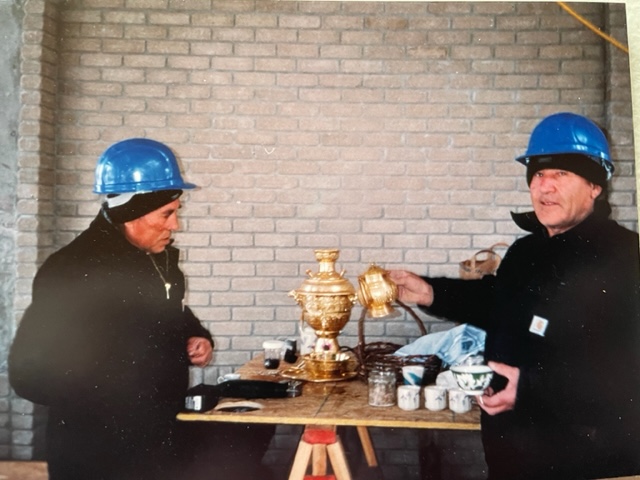
Crafting a Tajik menu for Boulder
“One of our goals has always been the cultural impact of the Teahouse, the idea of two cultures coming together on a grassroots level, and a huge part of cultural exchange is food,” Sara says.
As chef, Lenny’s current trans-global Teahouse menu ranges from Persian khoresht kadu, Korean pan-fried noodles and Ethiopian tibs to Peruvian parihuela and Tajik plov.
Tea and food pairing has become part of the Teahouse experience beyond the traditional British-style afternoon teas. Sara says her favorite dish is still Indonesian peanut noodles, an item on the menu since the early days. “With the richness of the sauce on the noodles and the complex flavors, I wouldn’t pair it with a heavy black tea. I would choose a tea like a Japanese sencha that is lighter, crisper, and has an earthy, crisp, grassy flavor as a counterbalance,” she says.
It must have been the roses
In summer, the Boulder Dushanbe Teahouse attracts as many visitors for the 25-year-old rose garden as it does for the art, tea and food. “I love all the roses, but that’s not us,” Sara says. “The Boulder Rose Society maintains more than 80 varieties of roses. They won’t let me touch them.”
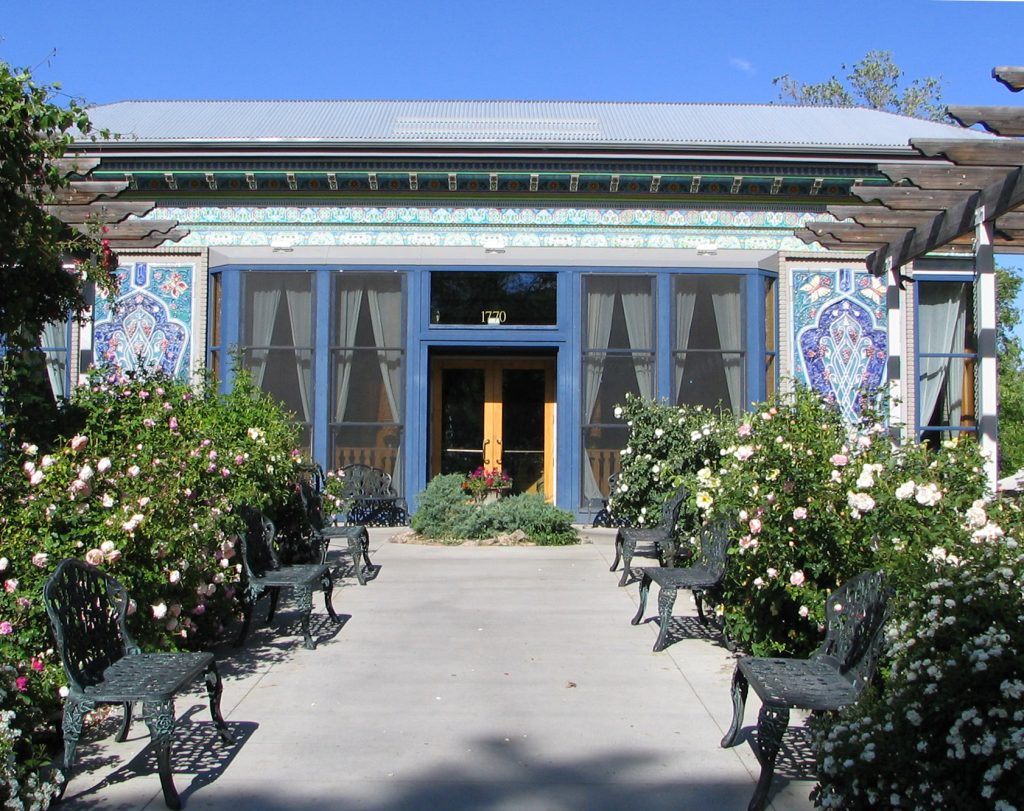
Over time, the gift from the people of Boulder’s sister city, Dushanbe, Tajikistan, has been recognized as a cultural landmark. “We now know more about Dushanbe and the history of Central Asia. This art very much predated the Soviet years when it was created. Now they’ve reclaimed a lot of their traditional art in Tajikistan,” Sara says.
Several Boulder events will celebrate the Teahouse’s 25th anniversary.
The 25 Years of Global Friendship: The Story of the Boulder Dushanbe Teahouse exhibit is on display at the Museum of Boulder through June 18, detailing the history of the Teahouse through photos and artifacts.
The Boulder Dushanbe Teahouse celebrates its 25th anniversary with events May 19-21, including a four-course Tajik dinner, a Tajik-themed afternoon tea, a tea market, tea tastings and workshops, and a contemporary Tajik art exhibit. Call for reservations: 303-442-4993
“The Teahouse is a treasure and I’m very grateful that we get to be part of it. I really think people in Boulder feel like this is their teahouse,” Sara says.
Local Food News: Fresh New Boulder Eats
Mangia Panino, has opened inside Boulder’s Avanti food hall, 1401 Pearl St.
Modern Indian fare is featured at the new Chameleon eatery inside Rosetta Food Hall, 1109 Walnut St., Boulder.
Crisp & Green, a salad and bowl eatery, is open at 1675 29th St., Suite 1272, Boulder.
Erie’s Cristos Coffee has opened a second shop at 2052 Broadway.
The Gold Hill Inn, 401 Main St., Boulder, opens for its 61st season May 5 for dining and music.
It’s honeybee swarm season, according to Boulder’s Nilo Bees. If you see a swarm, leave it alone and call the Boulder County Swarm Hotline: 1-844-779-2337
Words to Chew On: Edible Intimacy
“Eating is so intimate. It’s very sensual. When you invite someone to sit at your table and you want to cook for them, you’re inviting a person into your life.” — Maya Angelou














